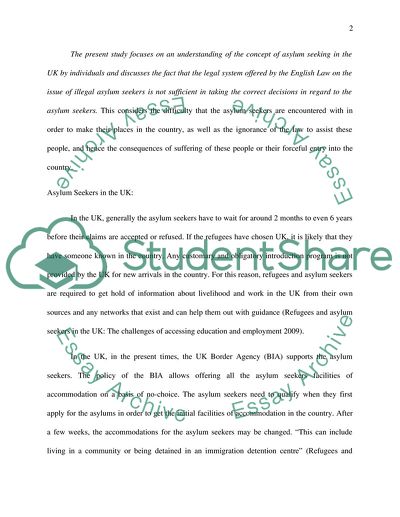Cite this document
(“Asylum Seekers in the United Kingdom Essay Example | Topics and Well Written Essays - 2250 words”, n.d.)
Asylum Seekers in the United Kingdom Essay Example | Topics and Well Written Essays - 2250 words. Retrieved from https://studentshare.org/law/1616591-illegal-asylum-seekers-in-the-united-kingdom
Asylum Seekers in the United Kingdom Essay Example | Topics and Well Written Essays - 2250 words. Retrieved from https://studentshare.org/law/1616591-illegal-asylum-seekers-in-the-united-kingdom
(Asylum Seekers in the United Kingdom Essay Example | Topics and Well Written Essays - 2250 Words)
Asylum Seekers in the United Kingdom Essay Example | Topics and Well Written Essays - 2250 Words. https://studentshare.org/law/1616591-illegal-asylum-seekers-in-the-united-kingdom.
Asylum Seekers in the United Kingdom Essay Example | Topics and Well Written Essays - 2250 Words. https://studentshare.org/law/1616591-illegal-asylum-seekers-in-the-united-kingdom.
“Asylum Seekers in the United Kingdom Essay Example | Topics and Well Written Essays - 2250 Words”, n.d. https://studentshare.org/law/1616591-illegal-asylum-seekers-in-the-united-kingdom.


